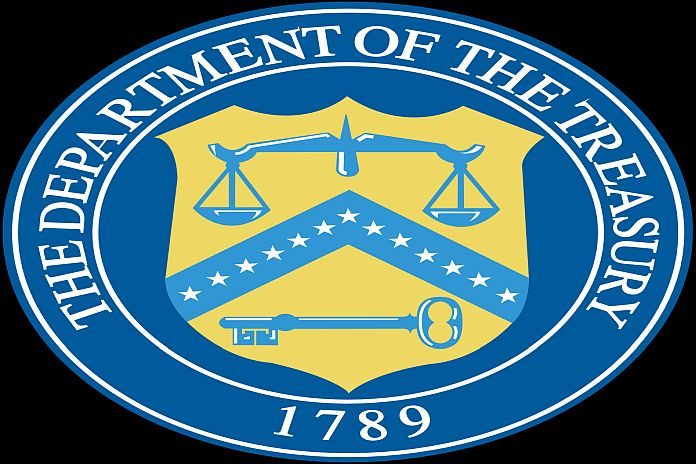WASHINGTON, USA — US Department of the Treasury’s Office of Foreign Assets Control (OFAC) is designating 15 actors across three countries in connection with serious human rights abuse and repressive acts targeting innocent civilians, political opponents, and peaceful protestors. As part of a whole-of-government commitment to democracy, Treasury is taking a number of actions aimed at promoting accountability for those who undermine trust in democratic institutions. Treasury is equipped with powerful tools to target the financial systems and flows that allow bad actors to profit from corruption and abuse. In addition, OFAC is designating two entities and two individuals that the Department of State has identified as responsible for certain gross violations of human rights in Iran.
Summit for Democracy
“Ahead of this week’s Summit for Democracy, Treasury is targeting over a dozen government officials across three countries in connection with serious human rights abuse that undermines democracy,” said Director of the Office of Foreign Assets Control Andrea M. Gacki. “Treasury will continue to defend against authoritarianism, promoting accountability for violent repression of people seeking to exercise their human rights and fundamental freedoms.”
Consistent with the goals of this week’s Summit for Democracy, the United States is committed to using its full range of tools to counter serious human rights abuse and repressive acts across the world. That is why today we designated multiple actors across three countries in connection with serious human rights abuse and repressive acts targeting political opponents, peaceful protestors, and other individuals pursuant to Executive Orders (E.O.) 13818, 13553, and 13572. The United States also submitted a report, pursuant to section 106 of the Countering America’s Adversaries Through Sanctions Act of 2017 (CAATSA), identifying persons who are responsible for certain gross violations of human rights in Iran.
Targeting repression
The Department of the Treasury, in consultation with the State Department, targeted military actors in connection with serious human rights abuse. These actors include the commander of the Ugandan Chieftaincy of Military Intelligence, two Syrian Air Force officers responsible for chemical weapons attacks on civilians, and three Syrian intelligence officers in Syria’s repressive security and intelligence apparatus. These designations, which include individuals previously sanctioned by the European Union, also bring the United States into closer alignment with allies and partners, reflecting our shared commitment to promoting democracy and respect for human rights.
Additionally, Treasury sanctioned seven Iranian individuals and two Iranian law enforcement entities in connection with serious human rights abuse pursuant to E.O. 13553. Further, pursuant to Section 106 of CAATSA, the Department of State identified two entities and two individuals who are responsible for certain gross violations of internationally recognized human rights in Iran. This action under CAATSA included two prisons, the Zahedan Prison and Isfahan Central Prison, which are responsible for extrajudicial killings and arbitrary detention.
The United States is committed to promoting democracy and accountability for those who abuse human rights around the world. The United States will utilize its full range of tools to highlight and disrupt these abuses of human rights. We will continue to stand in solidarity with the people of these countries and others where abuses and violations of human rights continue to occur.
Sanctions Implications
As a result of today’s action, all property and interests in property of the persons designated above that are in the United States or in the possession or control of US persons are blocked and must be reported to OFAC. In addition, any entities that are owned, directly or indirectly, 50 percent or more, by one or more blocked persons are also blocked. Unless authorized by a general or specific license issued by OFAC, or otherwise exempt, all transactions by US persons or within (or transiting) the United States that involve any property or interests in property of designated or otherwise blocked persons are prohibited. The prohibitions include the making of any contribution or provision of funds, goods, or services by, to, or for the benefit of any blocked person or the receipt of any contribution or provision of funds, goods, or services from any such person.
Global Magnitsky
Building upon the Global Magnitsky Human Rights Accountability Act, E.O. 13818 was issued on December 20, 2017, in recognition that the prevalence of human rights abuse and corruption that have their source, in whole or in substantial part, outside the United States, had reached such scope and gravity as to threaten the stability of international political and economic systems.
Human rights abuse and corruption undermine the values that form an essential foundation of stable, secure, and functioning societies; have devastating impacts on individuals; weaken democratic institutions; degrade the rule of law; perpetuate violent conflicts; facilitate the activities of dangerous persons; and undermine economic markets. The United States seeks to impose tangible and significant consequences on those who commit serious human rights abuse or engage in corruption, as well as to protect the financial system of the United States from abuse by these same persons.
For more information about today’s designations, please see the Department of the Treasury’s press release





